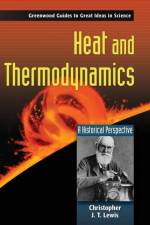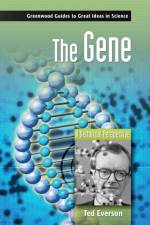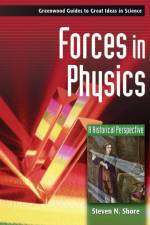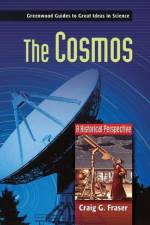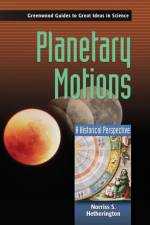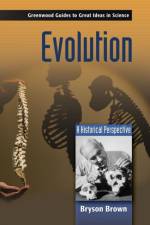Bøger i Greenwood Guides to Great Ideas in Science serien
-
- A Historical Perspective
943,95 kr. Traces the development of scientific concepts since ancient times. This series helps students understand not only what scientists know, but how they came to know it. It supports the recommendations of national science education standards on the history and nature of science; provides print and electronic resources for research; and more.
- Bog
- 943,95 kr.
-
- A Historical Perspective
943,95 kr. Traces the development of scientific concepts since ancient times. This series helps students understand not only what scientists know, but how they came to know it. It supports the recommendations of national science education standards on the history and nature of science; provides print and electronic resources for research; and more.
- Bog
- 943,95 kr.
-
- A Historical Perspective
943,95 kr. This volume in the Greenwood Guides to Great Ideas in Science series provides a history of quantum mechanics from the early breakthroughs of Planck and Einstein, at the beginning of the 20th century, to the present frontiers of quantum computing and quantum gravity.
- Bog
- 943,95 kr.
-
- A Historical Perspective
943,95 kr. One concept that greatly aided the scientific advance of the earth sciences was that of geological cycles. This work traces the history of this concept from the ancient philosophers to the modern times. It is useful for students researching the earth sciences and the history and nature of the scientific understanding of the world around us.
- Bog
- 943,95 kr.
-
- A Historical Perspective
900,95 kr. Traces the development of scientific concepts since ancient times. This series helps students understand not only what scientists know, but how they came to know it. It supports the recommendations of national science education standards on the history and nature of science; provides print and electronic resources for research; and more.
- Bog
- 900,95 kr.
-
- A Historical Perspective
943,95 kr. Provides an introduction to how humans have conceived of the universe throughout history and the ideas that have led to our understanding of the cosmos. This book examines: the Scientific Revolution; nineteenth-century physics and chemistry; Einstein's Theory of Relativity; and the inflationary universe theory and the possibility of "dark energy."
- Bog
- 943,95 kr.
-
- A Historical Perspective
943,95 kr. Students in an introductory physics class learn a variety of different, and seemingly unconnected, concepts. And one thing that connects all of these physical concepts is the impetus the great scientists of the past had to develop them - the desire to understand the motion of the planets of the solar system.
- Bog
- 943,95 kr.
-
- A Historical Perspective
943,95 kr. Traces the development of scientific concepts since ancient times. This series helps students understand not only what scientists know, but how they came to know it. It supports the recommendations of national science education standards on the history and nature of science; provides print and electronic resources for research; and more.
- Bog
- 943,95 kr.
-
- A Historical Perspective
943,95 kr. One of the most familiar features of any high-school chemistry lab is the Periodic Table of Elements. Mendeleyev and the creation of the Periodic Table of Elements, the predictive power of which helped in the discovery of dozens of new elements;
- Bog
- 943,95 kr.
-
- A Historical Perspective
943,95 kr. Students are often asked to understand complex scientific concepts in a vacuum - they are expected to grasp the significance of profound scientific truths from a few pages in a textbook or a brief classroom demonstration. This book helps students understand not only what scientists know, but how they came to know them.
- Bog
- 943,95 kr.

